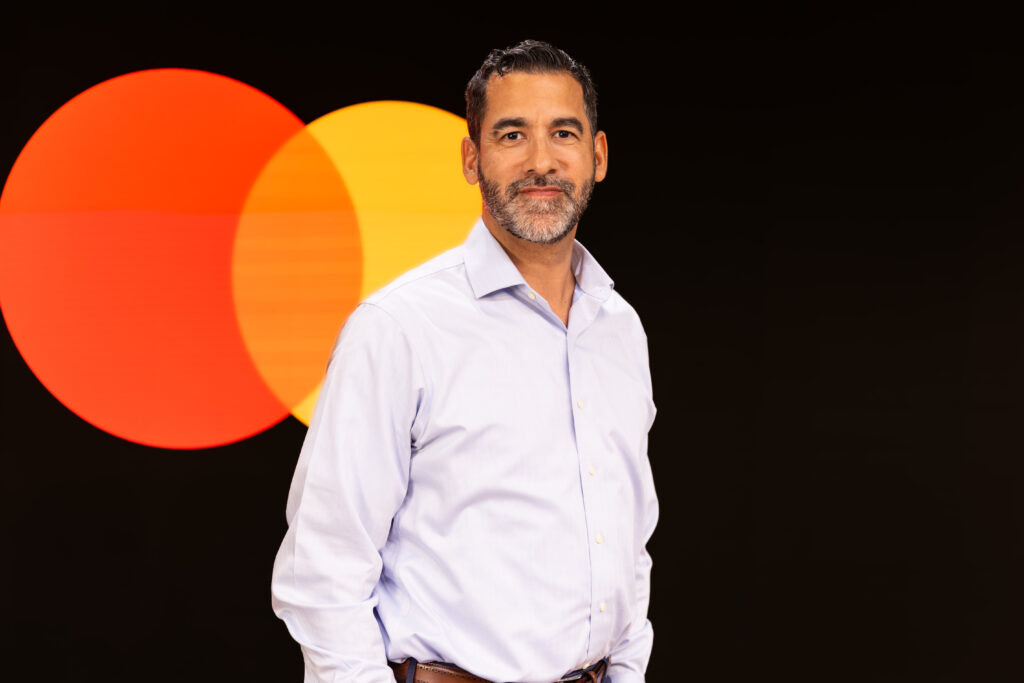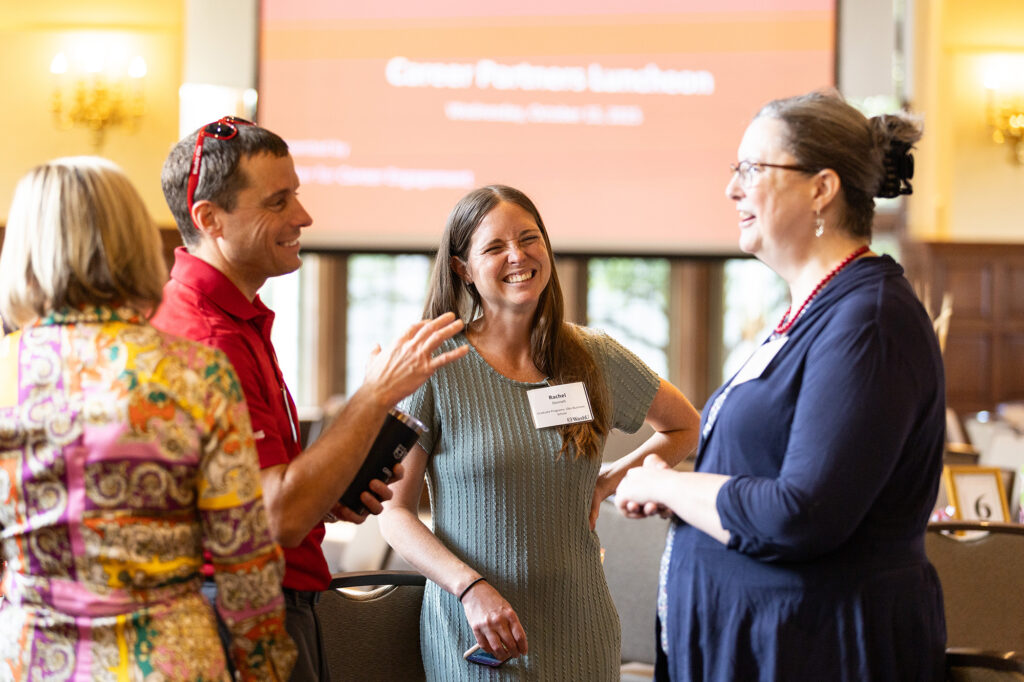Academic and campus partnerships
The Center for Career Engagement’s (CCE) academic partnerships focus on bridging the gap between academic learning and career readiness by embedding career exploration practices into the broader student experience.
This university-wide approach ensures that career thinking becomes part of students’ academic journey, not something separate from it.
“We’re creating a career ecosystem that brings everyone together—faculty members, advisers, coaches, and other WashU community members who care about students’ career success,” said Director of Academic Partnerships Nan Barnes. “We’re building partnerships that make that kind of integration possible.”
This work has so far centered on conducting a comprehensive needs assessment across the academic divisions to identify partnership opportunities and student support gaps. From this collaboration with the academic units, two main priorities have emerged—the Career Innovation Faculty Fellows and the Career Partners Network.
Career Innovation Faculty Fellows
The Career Innovation Faculty Fellows Program empowers interested faculty members to collaborate with CCE professionals to integrate career development directly into their coursework. Several examples of this work are already underway.
Career Partners Network
The Career Partners Network is a group of faculty and staff across campus who will have access to and help create content for a comprehensive resource library which will create a pathway for career engagement practices for faculty and staff.
“The overall goal of our academic partnerships is to create meaningful points of connection between academic content and career competencies,” explained Barnes.
Practical examples of this integration are already emerging across disciplines. For instance, Joe Jez, the Howard Hughes Medical Institute Professor and Spencer T. Olin Professor in Biology collaborated with the CCE’s coaching team to design and review an interview-based assignment, providing students with hands-on experience articulating their skills and interests. English faculty member, Heather McPherson incorporated publishing assignments to help students translate personal interests and academic learning into a coherent professional narrative. Three faculty members in Energy, Environmental & Chemical Engineering—Ray Ehrhard, Marcus Foston, and Trent Silbaugh—integrated career-focused assignments into their courses, guiding students through key stages of the career development process: self-reflection on values and skills, networking with professionals, and navigating the job search process.
“These examples illustrate how academic partnerships are helping students see the career relevance of their classroom experiences, reinforcing that career readiness is not a separate process, but an extension of their academic journey,” said Barnes.
Looking ahead, the Career Partners Network will continue to expand this collaborative model, offering faculty access to shared resources like a content library of career-integrated assignments and best practices.
“By fostering partnerships between educators and career professionals, the CCE is creating a sustainable framework for weaving professional growth into the academic fabric of the university,” said Barnes. “The effort not only prepares students for life after graduation but also strengthens the culture of exploration across campus—encouraging students to view their coursework as a space for discovering purpose, values and pathways beyond the classroom.”
Industry and employer partnerships
Beyond campus, the CCE extends that career ecosystem outward, creating a bridge between WashU talent and organizations across industries and continents. From Fortune 500 companies to local startups, employers are drawn to WashU for the maturity and readiness of its students.
“Employers are very interested in WashU talent because our students are equipped with the competencies, the skills and the ambition to contribute at a high level, and they do,” said Guerra Gaier. “Many of our employers often cite the strengths that WashU students, not only the competencies but the maturity that our students bring to their organizations, where they are immediate contributors at a high level within their organizations.”
Through more than 400 events each semester, including career fairs, panels and site visits, students and employers meet in spaces designed for authentic exchange. The results are partnerships that not only connect students to opportunities—but also invite employers and alumni to become co-educators in the career development process.
Through more than 400 events each semester, including career fairs, panels and site visits, students and employers meet in spaces designed for authentic exchange. The results are partnerships that not only connect students to opportunities—but also invite employers and alumni to become co-educators in the career development process.
What employers want
Employers seek students who can:
- Work in teams
- Think critically and solve problems
- Adapt to change (especially in the era of AI)
- Communicate effectively
“We work with a variety of career champions across all industries,” said Director of Employer Engagement Casey Jenkersen. “These individuals and organizations go above and beyond to support WashU talent. These are often alumni, senior level individuals or long-standing recruiters who regularly engage with our students, participate in events and advocate internally for hiring WashU graduates.”
These relationships do more than open doors. They shape how students envision and prepare for their futures. By engaging directly with employers, alumni and industry leaders, students gain real-world insight into emerging fields, workplace expectations and the evolving skills that drive success.
“At the same time, our industry partners help inform our programming and strategy, ensuring our graduates continue to stand out in a rapidly changing world.” Said Jenkerssen. Together, they create a dynamic exchange where learning extends beyond the classroom and career readiness becomes a shared commitment.

We have a fantastic track record of hiring at WashU. We find the students to be engaging, intellectually curious, and eager to solve challenging problems. And they do quite well at Mastercard when they start here.
Matt Holton, senior vice president and WashU alumnus
